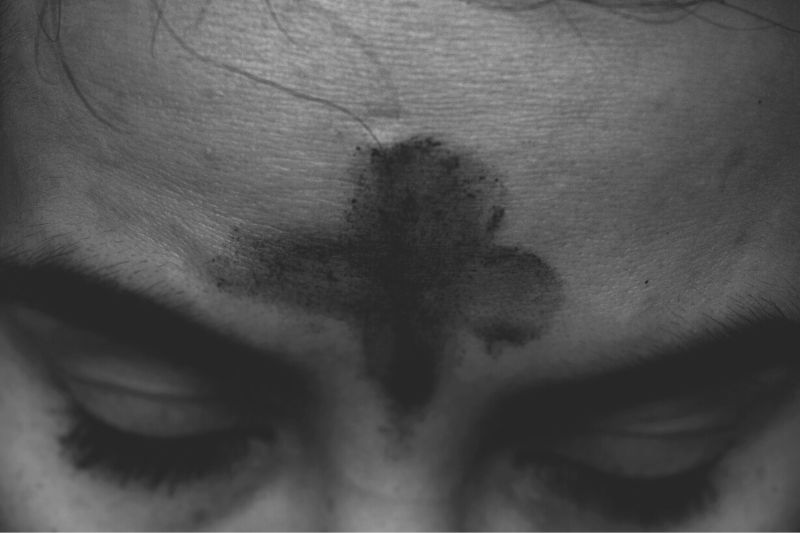‘Remember you are dust and to dust you will return.’ These ominous-sounding words still greet those attending traditional Ash Wednesday church services, ushering in the six-week season of Lent that culminates in Easter celebrations around the world.

They articulate a stunningly counter-cultural statement. We are dust! Each of us kneeling to receive that counsel is being reminded of at least three things: our vulnerability; our culpability; and that our lives are but a breath. To a culture desperately uncomfortable with ageing and death and vulnerability, this annual invocation of our mortality can be sobering.
Do we need reminding? I imagine my friend who lost her husband last year to a fast-moving cancer is all too aware of that fact. As is my mate who is now in a wheelchair after a freak surfing accident twelve months ago.
I would admit to feeling my ‘dustiness’ lately, having reached a certain age where I seem regularly to attend the funerals of my friend’s parents, and sometimes my own friends. More often than I would like, I experience portentous physical reminders that this show is headed in one direction only. Time ravages rather than heals.
In contemplating our ‘dustiness’ we are also confronted with our failures and fallibility — not a popular message these days. We are more likely to dwell on the external, shaping forces that have limited us than any role we may have played in the gloomy drama of our lives. But while we may recognise that we live in a world that is wonderful and broken at the same time, we ought also to acknowledge that human beings contribute substantially to that brokenness. We are both subject to reality and contributors to it. We are wounded and wounding.
'Maybe life isn’t all about me after all, but instead who I am in relation to others and how I contribute to the betterment of those around me.'
‘Glorious ruins’ is how the writer Steven Garber describes us, echoing Hamlet’s summary of the human condition:
What a piece of work is a man! How noble in reason, how infinite in faculty, in form and moving how express and admirable, in action how like an angel, in apprehension how like a god—the beauty of the world, the paragon of animals! And yet to me what is this quintessence of dust?
One of our biggest challenges is to face the gap between how we want to live and the reality of our daily existence. We aim for high standards. We expect them in others. But a moment of self-reflection will reveal our shortcomings. People resist talking about ‘sin’ these days, with the word either carrying an oversized burden of shame, or evoking images so trivial as to be meaningless.
The writer Francis Spufford, in trying to illuminate this ancient concept that he thinks remains vital, talks instead about the ‘Human propensity to F*#%$ things up!’: the HptFtu as he puts it. Everyone immediately knows what he means. They see it on the news every night. They know this ‘propensity’ among their work colleagues. They know it among their friends and in their families. And if they are honest, they know it in their own hearts.
The Oxford Philosopher Alister McGrath also doesn’t shy away from a sober assessment of human nature. In an interview for an historical documentary I was part of, he said:
Recovering the idea of sin is not about going back to some sort of superstitious past. It’s simply about recognising the truth about who we are and making adaptations to the way we think, the way we behave, which are much more realistic than this delusion of humanity as a perfectible being.
Finally, our ‘dustiness’ also alludes to our insignificance in the big scheme of things. For a culture that worships celebrity and encourages us all to be the star of our own curated reality, that is a confronting message. Maybe life isn’t all about me after all, but instead who I am in relation to others (and, for believers, in relation to God) and how I contribute to the betterment of those around me.
At Easter we do recall the darkness of Good Friday, and all the weight of suffering and loss that is embodied there. But that’s not the end. On Easter Sunday those who gather in services around the country will do so trusting that the ancient story of the crucified Jesus, who went on to defeat death, fully addresses the human predicament.
To our persistent propensity to F%$& things up, this story offers grace and true restoration. To our aching and broken hearts, it claims that deep mending is possible. And to our fragility and mortality, it promises that there is abundant life beyond this one. In other words, we might be ‘dust’, but the events of Easter tell us we are, at the same time, so much more.
Main image: Ash wednesday cross. (Getty images)